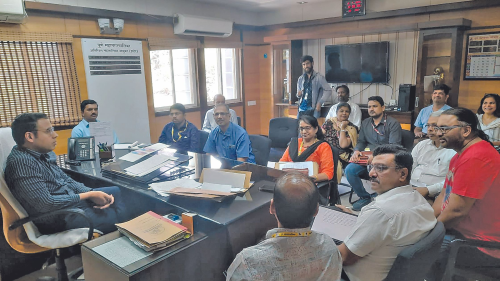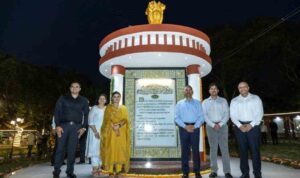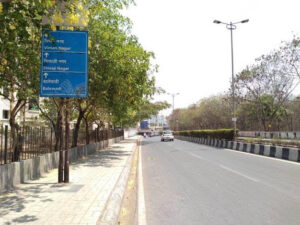MPCB Pune Initiates Air Quality Inspections At Crematoriums To Combat Pollution

Concerns over the increasing contribution of crematoriums to air pollution have prompted residents to engage with Pune Municipal Corporation (PMC) officials, seeking solutions to mitigate the issue. Following a meeting held on Wednesday, where residents and activists convened with civic authorities, a series of proposals emerged aimed at addressing the pressing environmental and logistical challenges posed by crematorium operations.
At the heart of the discussion was the need for the PMC to collaborate with the Maharashtra Pollution Control Board (MPCB) to conduct a comprehensive air quality survey. This survey is expected to provide valuable insights for developing effective strategies to combat air pollution emanating from crematoriums within the city.
During the meeting, citizens voiced their concerns regarding the absence of standardized air pollution norms for crematoriums. They urged the PMC to advocate for the establishment of such standards at the Central Pollution Control Board (CPCB), emphasizing the importance of regulating emissions from cremation facilities.
Notably, residents highlighted the malfunctioning of current Air Quality Index (AQI) sensors, part of the Smart City initiative. They called for the installation of more sophisticated sensors capable of monitoring a wider range of pollutants, particularly around crematoriums like Vaikunth. This move is seen as essential for accurately assessing air quality and implementing targeted pollution control measures.
Key stakeholders present at the meeting included additional municipal commissioner Prithviraj Meena, deputy municipal commissioner Madhav Jagtap, and other officials from various departments. Together, they deliberated on various proposals aimed at addressing the multifaceted challenges posed by crematorium operations.
Among the proposals discussed were measures to improve resource allocation and demand assessment to prevent misallocation of funds due to overcapacity planning. Additionally, there were calls for enhanced public communication, including the widespread publication of a list of crematoriums along with their contact information.
To effectively address air quality concerns, suggestions were put forth to establish a dedicated control room for monitoring pollution levels and to deploy air filtration systems capable of achieving high efficiency rates. Furthermore, there was consensus on the need for comprehensive surveys to assess crematorium utilization patterns and the effectiveness of existing pollution control measures.
Innovative solutions such as an online pass system for crematorium usage were also explored, with the aim of streamlining operations and improving data management. Proposals to enhance infrastructure and facilities at crematoriums, including parking provisions and funeral service options, were discussed to ensure better service delivery for citizens.
Overall, the meeting underscored the importance of collaborative efforts between citizens, activists, and civic authorities to address the environmental and logistical challenges associated with crematorium operations in Pune. As discussions continue, stakeholders remain committed to implementing sustainable solutions that prioritize both environmental protection and public welfare.







